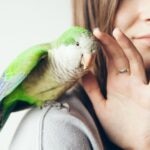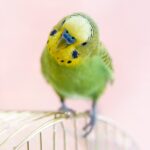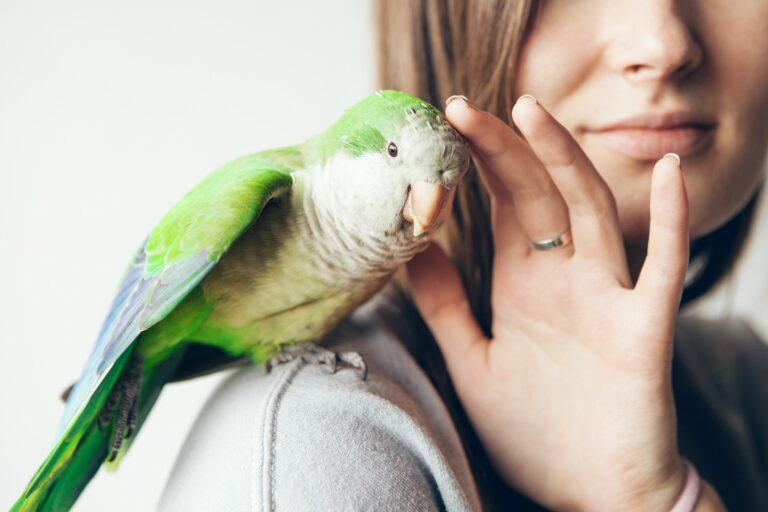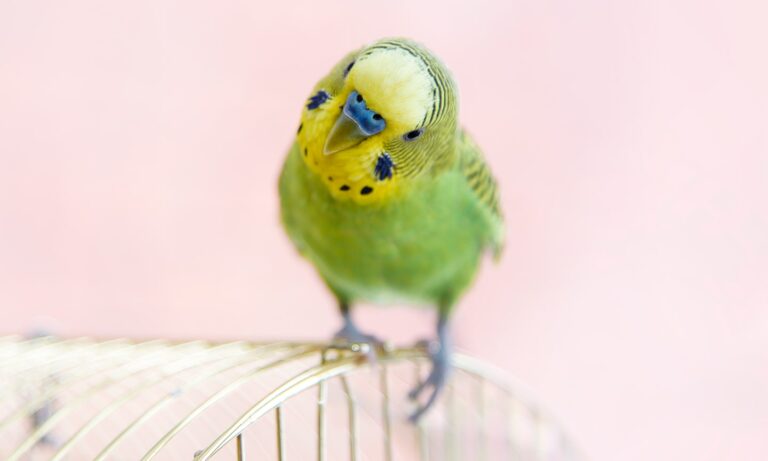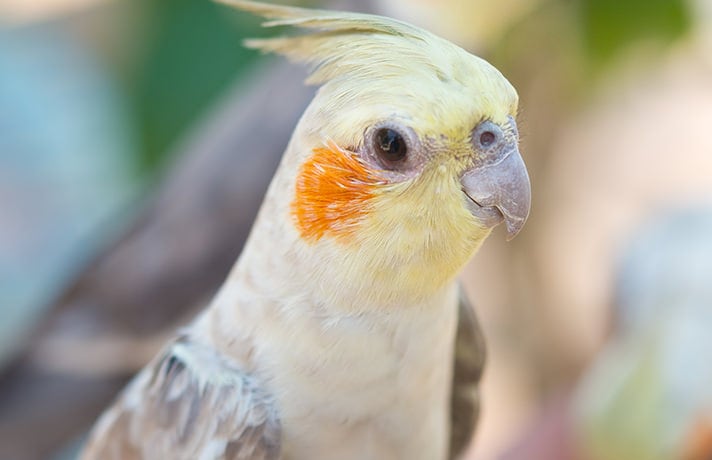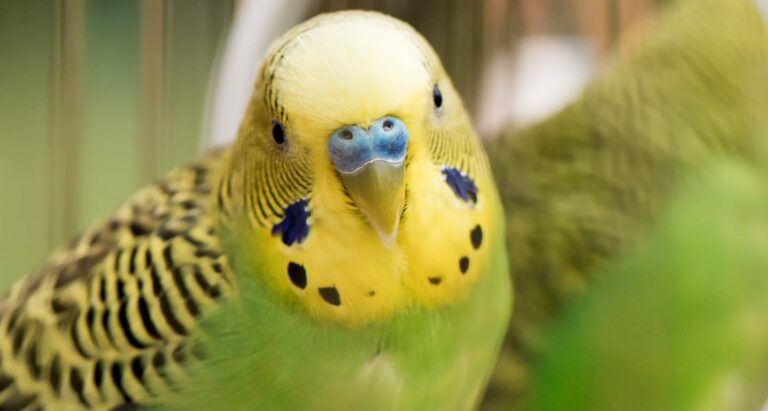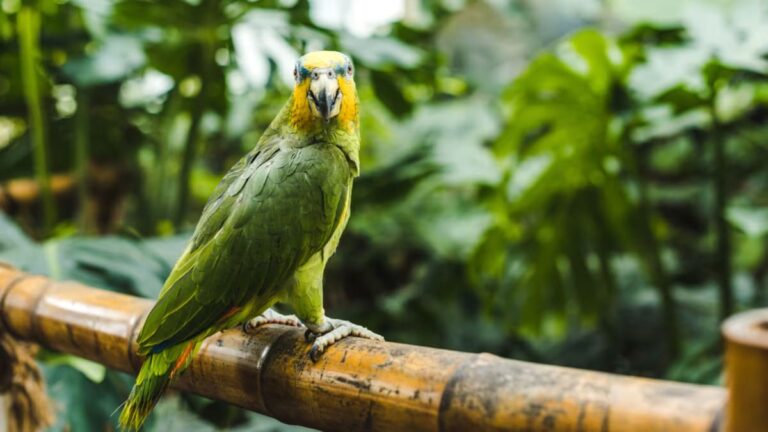Pet Macaws: The Good, The Bad And The Wildly Funny
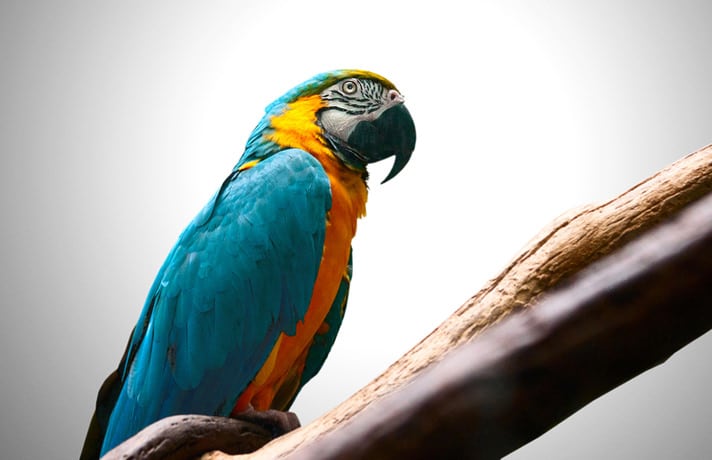
Photo by Elnur/Shutterstock
Huge, beautiful and brightly colored, many consider large macaws the ultimate pet birds. But choosing a macaw as a pet bird can be a serious mistake if people don’t know what they are getting into by bringing home such a complex parrot.
Macaw Noise
Loudness is the first word that should come to mind when thinking of the large macaws, because racket is built in to their DNA. Indeed, according to those who have seen them in the wild, you can hear macaws from at least 5 miles away. As a consequence, macaws rarely succeed over the long-term when housed in apartments or other close quarters.
I consider it normal for most adult macaws to produce 5 to 10 minutes of gut-wrenching, window-shattering, psychosis-inducing noise several times a day. Just because people don’t enjoy this, doesn’t mean that the noise is abnormal. As they say, if you want a quiet pet, get a reptile or a fish!
Macaw Destruction
Demolition or destruction is a characteristic behavior of parrots. I’ve been told numerous times that the best way to identify the favorite roosts of wild parrot flocks is by looking at the ground. The medley of detritus found beneath parrot bird perches often includes bits of food, wood and anything else its beak came upon.
Chewing your woodwork and expensive books is just as natural a behavior as shredding trees in the jungle. This behavior cannot, nor should it, be “trained out.” There are few substances in our homes that can withstand the beak of a determined large macaw, so decorate with prudence.
Macaw Sociability
Like many species of parrots, macaws are extremely social creatures. Rarely seen alone in the wild, they spend much of their time in small family flocks. Not all psittacine species “mate for life,” but this appears a fundamental characteristic of the large macaws. Because of their gregarious nature and inclination to form tight bonds, you can’t expect a macaw to sit quietly in its cage while you go about your day. They need daily human interaction.
Macaw Territoriality
According to macaw researcher Charles Munn, Ph.D., the primary obstacle to macaws reproducing in the wild is a lack of the huge dead trees they need for their nests. Despite residing in our living rooms, our pet macaws retain that territoriality toward their “trees.” In our homes, this can translate into bird aggression, especially around their cages.
Combine that tendency with most people’s fear of that macaw’s big beak, and many pet macaws become problematic for their owners, making benign chores, such as feeding and servicing the cage, a dangerous venture for inexperienced caretakers. This behavior, however, does not need to become a problem, as I will explain.
Macaw Physical Affection
Although many people consider cockatoos the most physically demonstrative parrots, those of us who really know macaws think they are equally so. Unlike cockatoos, which often cuddle up to total strangers, macaws are only physically affectionate with people they know very well. It’s unlikely that an adult macaw you’ve just met will allow you to cuddle with it, but a macaw that loves and trusts you is almost puppy-like in its affection. For example, my 50-plus-year-old blue-and-gold macaw Sam rolls over on her back to play and blow kisses. Although a wild-caught parrot, Sam often acts just as sweet and gentle as any domestically-raised bird.
More Macaw Behaviors
Lunging: Macaws often lunge at people, especially strangers. This is a very effective way to scare the daylights out of someone who is afraid of that big beak, which, in turn, teaches the macaw that it can control humans with threat behaviors. From my experience, the lunge is rarely about aggression. Instead, many macaws seem use it as a test.
My Sam has raised this game to Olympic levels. I even gave it a new name as it evolved, “Boo.” When she is meeting a new person, Sam appears outgoing and friendly. She sits on the person’s arm and does her silly greeting dance. She blushes prettily and sweetly says, “Hi,” lulling that poor sucker into a false sense of security. As the person begins to relax around her (as in, “Hey, dealing with big parrots is no big deal after all”), Sam instantly changes. At that point, Sam suddenly lunges at the person’s face, throwing her wings out to their full 3-foot span and simultaneously yelling “Boo!”
Inexperienced people who possess normal nervous systems, jump violently. Obviously pleased with her success, Sam’s eyes flash and she laughs (as in, “Gotcha, chump!”). It took her seconds to identify that a person is afraid, meaning she is in control of the relationship. Many other macaws also play this lunging game, likely for the same reason.
Regurgitation: Sexually mature macaws regurgitate enthusiastically for the humans they love, whether in nesting season or not. As with any other sexual behaviors, discourage, but do not punish this habit. For reasons we don’t understand, this behavior sometimes, in very rare instances, reaches the level of pathology, with individuals regurgitating almost constantly.
[Note: Regurgitation can also signal a medical problem like a yeast infection in the crop, which your avian veterinarian can rule out quite easily.]
Singing: As far as I can tell (from the hundreds of macaws I have encountered over the years), macaws love to sing, either softly or loudly and with great enthusiasm. This is wonderful, except that the ones I know are completely tone-deaf and sing as badly as my husband does (and that’s really bad, trust me). My blue and gold adores singing along with sad ballads in a loud, off-key, “La la la laaaaaaaaaaaaaah!”
Macaw sense of humor: Many parrot species seem to possess a wry sense of humor, but the macaws’ funny streak runs the raucous and often quite black route. In my office, Sam enjoys sitting on the back of my chair, where she can reach down and thump me on the top of my head. When she’s finished with that, she starts flapping her wings, and flapping and flapping until she creates a whirlwind that blows the piles of paper on my desk off around the room.
Although she’d been flighted for more than 30 years, she loves performing these wing flaps and only in my office, in that particular spot. She snickers as I lurch about, snatching at loose papers. It’s especially fun for Sam if I lose my temper. (It seems to me that there are few things that tickle macaws more than getting their humans mad enough to lose their tempers.) More than once, people have gotten very tardy callbacks from me, because Sam blew all my little notes everywhere, and I lost a phone message behind my desk. Somehow, that doesn’t seem like a good excuse for a parrot behavior consultant to use, though.
From Bad Macaw To Good Macaw
From my experience, macaws thrive in situations where their people do not allow them to run amuck. I boarded parrots in my home for 10-plus years, and all the macaws that stayed with me responded beautifully to gentle and loving limits set on their behavior. They even seem enchanted by those that were not scared of that big beak and developed lavish crushes on them.
Macaw owners need to set clear limits on a macaw’s behavior and to consistently uphold those rules and expectations. Do not allow the beak to scare you off. After all, if you have a dog that frightens you, how could you establish a good relationship with that animal? I am not saying that you should allow the bird to injure you, but the fear of that possible injury is often worse than the reality.
The good news is that most macaws are (like me!) extremely food motivated, making food rewards a good training tool. Providing a bird with a tangible incentive (food) for doing what the owner wants it to do, an owner can avoid a lot of potential aggression. For example, training a macaw to happily climb on a stick can prevent problems later when the bird might become territorial around the cage. You can safely remove a stick-trained parrot from bird cages and place it on a playgym prior to servicing the cage, thereby totally avoiding any conflicts.
As previously mentioned, just because a human doesn’t enjoy the intermittent bursts of blood-curdling macaw screams, it does not constitute a behavior problem. Macaws make noise; they cannot be taught to be quiet.
In fact, trying to suppress parrot vocalizations usually increases it. People often give increased attention to screaming parrots, trying to hush them. It takes the birds about 32 seconds (or less) to grasp that screaming gets them noticed. After all, when our parrots are quiet, don’t we often forget they are there, only to yell at them when they scream? The behavior we enjoy—quiet time—we ignore, and the behavior we do not enjoy—screaming—we reinforce with lavish attention rewards.
To keep a macaw as quiet as possible, you’ll first need to understand that this is a naturally noisy animal. Knowing this, I encourage my Sam to scream with me for short bursts off and on through the day, as I feel this allows her a natural outlet to blow off steam. I refrain from this exercise when my husband is home, because he has no tolerance for the sound. When Sam is acting particularly noisy, I might give her a shower right before my husband comes home. Preening wet feathers is guaranteed to subdue her.
Therefore, I do not expect Sam to be a quiet bird. Instead, I try to channel her normal racket into times when it is least likely to cause friction in the household.
Protecting your woodwork and furniture from a macaw’s beak is simple. Do not allow your macaw unsupervised out-of-the-cage playtime and do not position the cage too close to the wall or anything of value. Simple. Smart macaw owners also provide easy access to chewable objects to keep that beak busy. My macaw happily composts her way through phone books, old paperbacks, chunks of wood and branches with bark intact. When doing my job properly, she is not allowed access to things I don’t want destroyed. If I fail at my job and she demolishes something, that is my fault, not hers.
Macaws are rowdy, funny and affectionate clowns that will give you all the love and loyalty you will ever need from a companion—as long as you understand that no matter what, they are still macaws. Macaws do not make good pets for the feint of heart, apartment dwellers or those prone to migraines. To expect them to be other than what they are will only set you both up for failure. Enjoy the macaw for all that it is, and you open yourself up to incredible joy.
